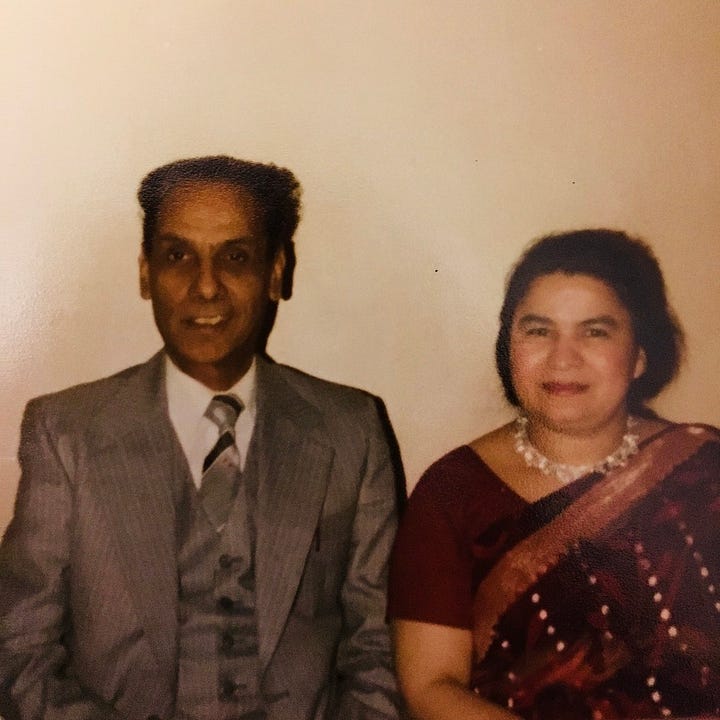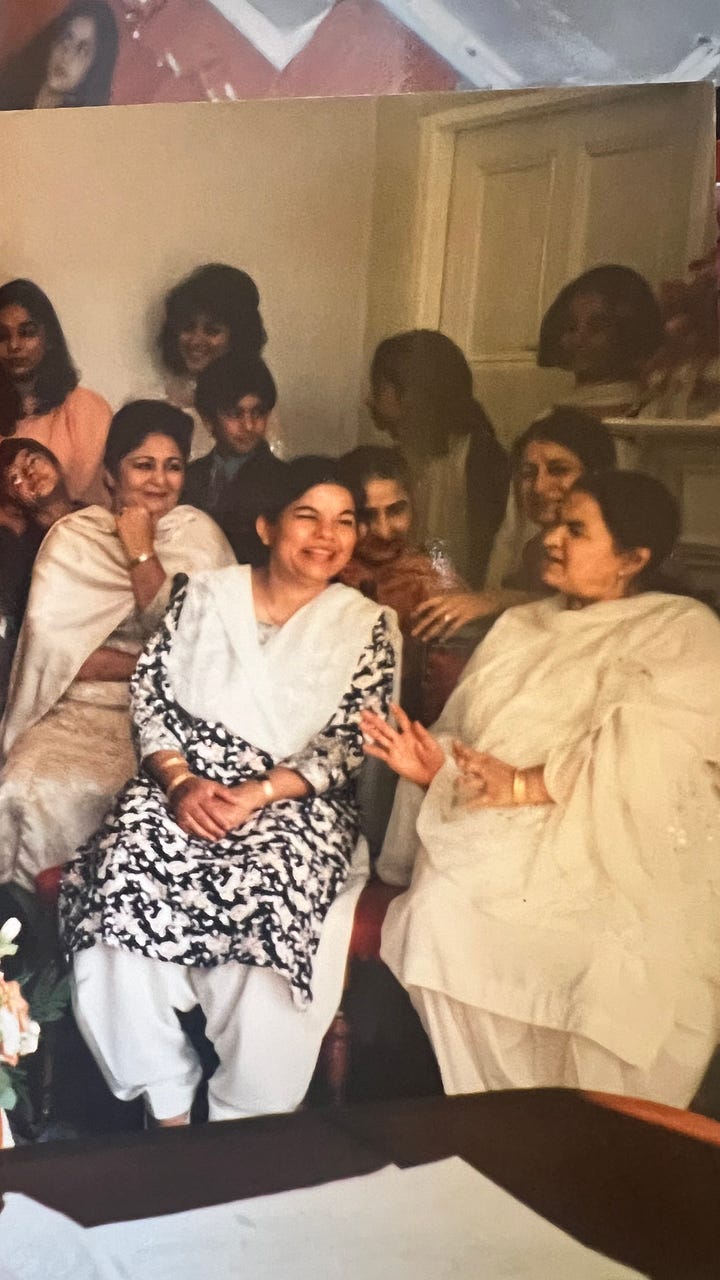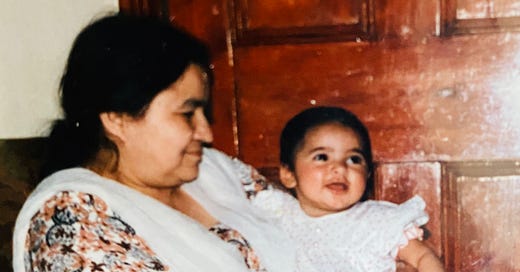Two weeks ago, on 26th June 2025 / 1st Muharram 1447 my cherished Nani Jaan left this world to return to her Beloved.
I’ve been trying to find the words to express my grief. I can’t put my finger on it, to give my grief a name.
In the age of oversharing and publishing every thought online, I just want to sit silently with my pain. I want to curl up at my mama’s feet. I want to hold my sister’s hand. I want to cry until I can’t feel anything.
It feels unreasonable to feel this broken. It was her time. Nani Jaan lived the fullest life. She was a force of nature and her life was a triumph over the hardships of this world. Nani Jaan took her last breaths peacefully, surrounded by all six of her children and doting youngest grandchildren. We should all be so blessed.
And yet I grieve. When the centre no longer holds, I am finding it hard to ground myself.
People say something about time. And moving on. And the two absolutes of our existence that we must accept.
I suppose this acceptance will come eventually. I wait until I find the words, until the ground feels steady beneath my feet.
For now, I am resharing a newsletter I wrote about Nani Jaan from March 8 2021.
An Ode to Jugu
The Parcha in honour of my nani jaan.
Her sparky personality, whizzing around in the kitchen earned her the nickname ‘Jugnu’, firefly, by my nana.
My nani’s lessons are woven into stories of migration.
The near death experiences traversing the winding roads of Murree Hills as a child. Her giggling over the handful of Burmese swearwords from her time in Yangon.
The times she tells me tales of climbing papaya and guava trees in Dehradun.
When she chased my six year old mum down a spiral stair case with a chappal for sneaking a teaspoon of sugar from the pantry ( or was it for stealing a penny from her purse?) when they lived in Rawalpindi.
In hushed tones, she blushes as she recalls letters from my nana asking her to stow away spices in her luggage before she made the journey to London.
Listening to her stories, I am fascinated by my nani’s confidence, tenacity and strength of character. She quickly adapted to the new world in London after a lifetime of a cloistered existence in an extended family system.
Growing up a conservative South Asian woman, she embraced her traditional role as an obliging homemaker. But it was in the kitchen where my nani asserted her power. She found her agency over cauldrons of Biryani served at my mum’s wedding, in the samosas sold in the thousands at my nana’s office and the cooking wisdom she imparts like life lessons to other women in our community.
My nani is every Pakistani woman I have ever met. Cooking is just one of many acts of power, a gesture of freedom in a culture that sometimes denies us this basic right.
At times I feel like the world has us Pakistani women at our knees. We are taught from a young age to persevere, just get on with it, and accept the cards we are dealt.
I draw from the strength of my foremothers. My voice, my will to thrive is an act of defiance in itself. When I feel like I have been knocked down (and trust me, there have been moments plenty) I think of my nani and I find the courage to rise, rise and rise again.
Nani jaan this is for you. It will always be for you.
Numra x




Food writers and their ilk have expressed a fatigue in hearing stories of desi grandmothers and their recipes. They tell us, they’d like us to share tales beyond the matriarchal kitchen. I have plenty of those stories and those are stories to tell one day.
But what I would do to learn another recipe, and hear just one more story from my Nani Jaan.
When I was unable to visit Nani Jaan during the pandemic, I would facetime her. On one occasion in February 2021, I asked my aunt, Hina Mami, to record the conversation. Here is a unedited (and uncensored!) video of our chat. We speak in Urdu, tolerate video lags and giggle over Nani Jaan’s tales about her life cooking at home in South London and back home in Rawalpindi.
If you can’t understand Urdu, you can watch an excerpt with English subtitles here.
Nani Jaan talks about some of her favourite food during our conversation - Kadhi, Paye, Punjabi Samosas, Karelay, Murghi, Pasande, Gulab Jamun, Gajjar ka Achar, plums, Imli. She repeatedly tells me about how she taught others to cook over the years and the significance of passing recipes on.
My work at Empress Market is in honour of Nani Jaan. I cook from the heart, just as she did, dil se. My menus are rooted in my desi heritage, cooked with my haath ka mazaa, the flavour in my hand.
In my effort to carry on her legacy, I’ll continue to cook, tell stories about where I come from and share my Nani Jaan’s recipes.
I’ll leave you with a video of Nani Jaan walking over to the telly to disapprove of Mary Berry’s love for raw meat, kacha ghosht!
Thank you for reading. Thank you for listening to one of the many stories about Munir Jahan Ahmed so she can live on in our hearts.
Numra xx







A beautiful tribute Numra, thank you for sharing such treasured memories during this difficult time xx
Thank you for this treasure!